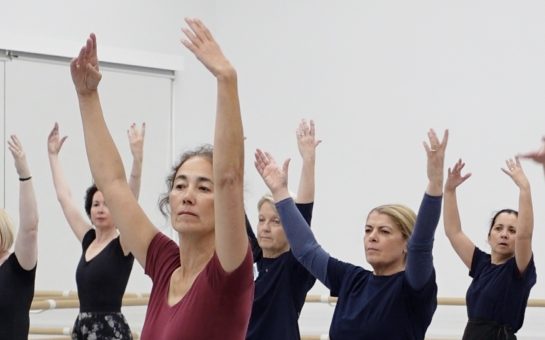As many as 45% of Londoners aged 75 or above do not use the internet at all, according to projections in a report published by Age UK London last month.
During lockdown, more than 200,000 elderly London residents were unable to see friends and family, receive online care or access web-based services for over a year.
Contrary to popular belief that older people have started using the internet more during the pandemic, only 20% of over 75’s reported using the internet more and 10% used it less.
One older Londoner told Age UK London: “I am old and trying hard, but feel completely excluded from life by all the digitalisation.”
According to the report, 41% of Londoners in this age bracket use the internet daily compared to 45% who do not use it at all, while the comparative statistics across the UK as a whole were 46% and 42% respectively, suggesting the problem is particularly prevalent in London.
The most common reason cited by older Londoners for the deficit in internet usage is a lack of digital skills, but there are also issues around access, confidence and a fear of stepping into such unfamiliar territory.
One older Londoner told Age UK London: “I’m not interested because I can’t understand it.
“I’ve never been on the internet or looked at it because I have no interest to and don’t really enjoy that type of thing.”
Another said: “I don’t feel confident learning digital skills, but if someone will show me step by step, I would be willing to learn.
“Everything is now online so even if I have to report a repair at home, I don’t know how to, but it would make my life easier to know how to use the website.
“But I will never use online banking because I’m scared.”
Age UK London CEO Abigail Wood explained the benefits behind internet usage in elderly people, saying that Age UK found older Lononders who took online classes to be both physically and mentally stronger.
The charity is also encouraging internet providers to make the process of setting up a broadband contract more friendly and to create more affordable social tariffs, an initiative that BT is currently leading on.
Wood said: “Elderly people don’t know what they’re signing up for if they’ve never had a broadband contract before, and when they’re reading the fine print, they might think (as any reasonable person would) ‘oh, well I’m not sure if this makes sense’.
“That’s why putting these contracts into plain English and training staff to be more age friendly is so important.”
Wood praised the Mayor of London and London Recovery Board for their mission to get all Londoners online by 2025 and stated that local authorities should play their part in providing online training – a service that Age UK already helps with – and public spaces for people to use computers and the internet.

One concerning reason suggested as to why internet access and usage is particularly limited among London’s older population is linked to the city’s high poverty rate for pensioners.
An older woman who relied on using the internet at her local library because she could not afford broadband at home told Age UK London: “I couldn’t read my emails, I couldn’t find out any information about what was going on and I had no idea when this nightmare would end.”
Currently 2.1 million pensioners in the UK live in poverty, which is an increase from 2013-14 when 1.6 million lived in poverty.
While national poverty levels for pensioners have risen from 14% to 18% in this timeframe, data collected by the Department for Work and Pensions shows that 25% of London’s elderly population are living in poverty.
Senior Campaigns Officer at Age UK London John McGeachy said: “There are a lot of ageist assumptions about older people in London, where people presume they’re all well-off, but that’s simply not the case.
“I think something that London suffers from quite a lot is the tyranny of averages, where the presence of some very wealthy people can give a misleading picture because it boosts up the average, but actually we have the worst child and senior poverty rates.
“Digital exclusion in general has a huge impact on older low-income people who can’t find the best deals, or find out what benefits they’re entitled to, because it’s mostly all online.”
Feature image credit: London Age UK




